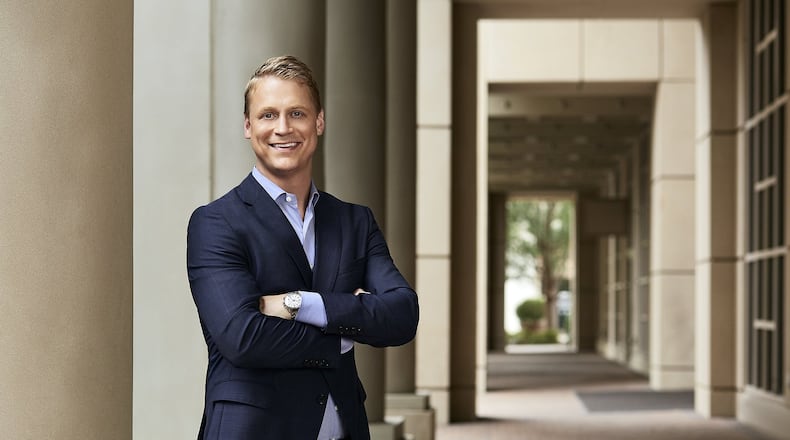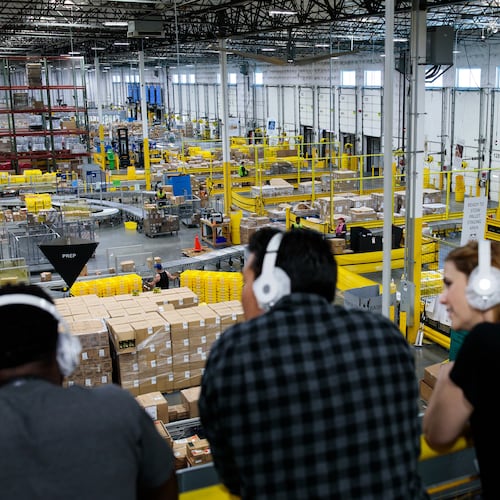I argue that money can buy happiness and that the cost is lower than you might think. Despite that, there are diminishing marginal returns and a plateau effect to this strategy. Typically, more money leads to more happiness up to a certain income level. For instance, it’s easier to be happy when you can afford to pay your bills. Deeper pockets are great, but at a certain depth, they may just feel empty. Happiness levels stop rising. Finally, being able to take your family on that island vacation can make you happier, but buying your family that same island probably won’t. Or, at least, not at the same ratio.
However, quite the opposite is true with close social connections and friendships. They can be an even better happiness currency than money. The more you have directly correlates to higher levels of happiness with no cap on that market. Quite simply, when it comes to close connections, more is better.
“Blue Zones” author Dan Buettner says that Americans have gone from an average of three close friends in the 1990s down to 1.7 today. This, despite the explosion of more “friends” on social media, purports that connecting digitally has crowded out the prioritization of actual social time and effort.
The magic number seems to be three close connections. It’s here that we see an inflection point. Unhappiest Retirees on the Block (UROBs) average 2.6 close connections while the happy ones (HROBs) average 3.6. I learned this, along with several other statistics that we’ll cover in this article, from my latest research for my upcoming book, “What the Happiest Retirees Know — 10 Habits for a Healthy, Secure, and Joyful Life.”
As promised, that number can continue to rise. The data shows that retirees with three close connections are two times more likely to be HROBs and retirees with five are four times more likely. Now, before you go out and try to befriend every human being in the world, let’s be realistic. It’s not feasible to have 100 ride-or-die comrades, but within reason, the higher you go above three, the more exponentially impactful it can be to your retirement happiness.
Albert Einstein reputedly called compound interest the Eighth Wonder of the World. If he found that much joy in letting his money work for him, one can only imagine how elated he would’ve been to compute the compounding effect social connectedness has on overall happiness.
Of course, none of this diminishes the positive impact saving and investing have on retirement happiness. In fact, those are essential steps of the HROB journey. The prescription here is not to decrease the value of money but to increase the prioritization of close social connections.
How often do you need to see each of your confidants? About once a month seems to do the trick. Friendship and close connections require time and effort, well beyond a message on Facebook. Seeing an acquaintance once a year at Christmas is fine, but the inflection point for someone who really counts is higher.
Another factor to consider is how many social groups to which you belong. Some examples are tennis teams, church groups, running groups and book clubs.
Here’s the good news: HROBs only need one social epicenter.
The Wall Street Journal’s article making the case against early retirement, my favorite one to dispute, assessed that retirees struggle tremendously with social connectedness once they stop working because that office environment serves as a great connection catalyst to multiple tangential crowds. Once that has evaporated, it is sometimes difficult to re-create those connections and their respective spinoffs.
The data that we found on this topic showed that no matter how many groups to which a person belongs, only one is vital because its social connections beget others.
A wonderful example we can see of this is based right here in Atlanta with Monday Night Brewing. Its origin story is that of three guys who met at church, formed a Bible study, and realized they all had a passion for brewing beer. After a few years of casual homebrewing, the trio opened their West Midtown location serving Eye Patch Ale and Draft Kilt Scotch Ale. Their love of hops and silly-named craft ales and lagers spawned an entire movement, and they continue to be in business to this day. One social group, the church, led to a thriving brewery business with multiple locations that continues to foster a sense of community, creative incubation, and ripple effects for others.
Social groups engender more social groups. It only takes one to get started, and you never know where that might lead.
Another important question is how many times per year do you travel with friends?
Think about your last big Thanksgiving get-together. How much quality time did you actually spend with your favorite relative? Was it around a table with 15 other family members all asking you to pass the gravy? If you’re like my family, it’s a little hard to get a word in edgewise. Conversely, planning a getaway with a manageable number of companions lends itself to an abundance of quality time that can lead to truer and deeper connections.
Our data clearly shows that traveling with friends is worth much more than the cost of a plane ticket. If you’re using frequent flyer miles, that isn’t saying much but you understand my point. In fact, traveling on three or more occasions per year with friends increases your likelihood of retirement happiness by more than four times!
A friend recently confided to me that when lamenting the cost of an upcoming vacation, his therapist advised him that his job was to “make memories with your wife.” I think the same holds true for our close friendships. Working and saving are important, but if we never spend a little time and money to connect with our loved ones, what’s the point? There’s simply no substitute for traveling with friends!
The bottom line is that social connections are an essential part of the HROB formula. Not only do they help us live longer, but they are a primary ingredient for happiness. Without a social epicenter, the chances of becoming or staying a happy retiree drop dramatically. Put in the time and effort, pack for that trip, and let that compound happiness accrue.
Wes Moss is the host of the podcast “Retire Sooner with Wes Moss,” found in the podcast app right on your smartphone. He has been the host of “Money Matters” on News 95.5 and AM 750 WSB in Atlanta for more than 10 years now, and he does a live show from 9-11 a.m. Sundays. He is the chief investment strategist for Atlanta-based Capital Investment Advisors. For more information, go to wesmoss.com.
DISCLOSURE
This information is provided to you as a resource for informational purposes only and is not to be viewed as investment advice or recommendations. This information is being presented without consideration of the investment objectives, risk tolerance, or financial circumstances of any specific investor and might not be suitable for all investors. This information is not intended to, and should not, form a primary basis for any investment decision that you may make. Always consult your own legal, tax, or investment adviser before making any investment/tax/estate/financial planning considerations or decisions.
About the Author
Keep Reading
The Latest
Featured



